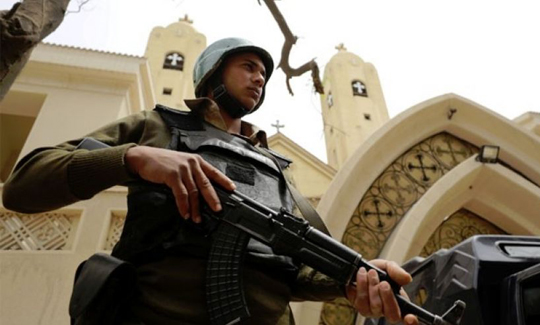Cairo, May 26: Gunmen opened fire on a bus carrying Coptic Christians traveling just south of Cairo Friday, killing 23 and injuring 25, Egyptian state TV reported.

The ministry said there were between eight and 10 attackers dressed in military uniforms, according to witnesses.
No group immediately claimed responsibility for the attack. But Egypt's Coptic Christians have become the preferred target of the Islamic State group.
On Wednesday, the U.S. Embassy in Cairo issued a security message, stating that it was aware of a potential threat posted on a website by the Hassm Group, a known terrorist organization, suggesting some kind of unspecified action that evening.
In February, an Islamic State affiliate released a video saying that Egyptian Christians were their "favorite prey." The video showed images of a suicide bomber who killed nearly 30 people inside a packed Cairo church in December.
"God gave orders to kill every infidel," one of the militants carrying an AK-47 assault rifle says in the 20-minute video.
The report quotes local health officials as saying that the attack occurred while the bus was traveling on the road to the St. Samuel Monastery in the Minya governorate, about 140 miles, south of the Egyptian capital.
Egypt has seen a wave of attacks on its Christians, including twin suicide bombings in April and another attack in December on a Cairo church that left over 75 people dead and scores wounded. The Islamic State group in Egypt claimed responsibility for them and vowed more attacks.
Late last month Pope Francis visited Egypt in part to show his support for the Christians of this Muslim majority Arab nation who have been increasingly targeted by Islamic militants.
Over the past decades, Coptics have rallied behind general-turned-president, Abdel-Fattah el-Sissi, in 2013 when he ousted his Islamist predecessor Mohammed Morsi, who hails from the Muslim Brotherhood group. Attacks on Christian homes, businesses and churches subsequently surged, especially in the country's south.





Comments
Add new comment